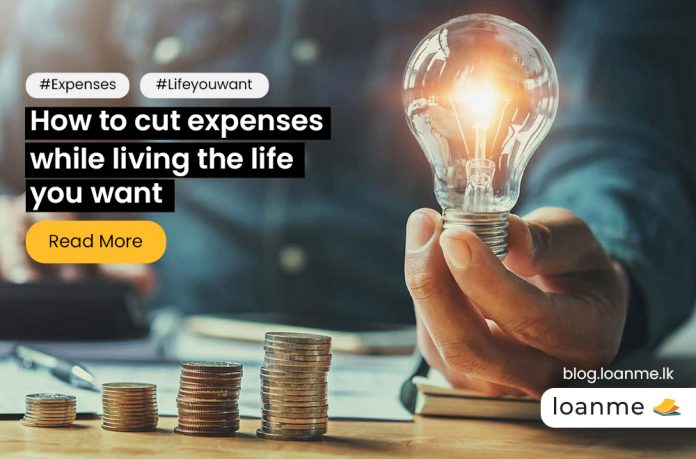We make financial decisions every day even though the money part is often an afterthought. We grab our morning coffee, click on Instagram ads, choose our normal food at the grocery store, order that extra drink.Spending habits are OK as long as they serve you. If they are a waste of your money, it’s time to break them.
How do you do that? There are many ways to cut expenses and save money. You just need to know where to look.
- Keep Track of Your Spending Habits
If you’ve ever had a baby in the house, you know how they can disappear if you aren’t keeping a close eye on them. Well, money is like that, too. The solution is simple: Keep a written record of what you spend. If you don’t know where your money is going, it’s nearly impossible to know where you can cut your expenses. To be clear, we mean everything, even the rupee you paid for a soft drink. Simply doing this will make you think about whether you really ought to make that expense. Use a notebook, spreadsheet or budgeting app. Do this for a minimum of one month or two and you’ll have the information you need for the next step in the process.
- Create a Budget
Creating a budget requires three things: Knowing how much you earn, knowing how much you spend and making a plan to spend less than you make so you can save what’s left over. Once you know what your income and expenses are, you can prioritize spending to accomplish your goals. Another approach is the 50-30-20 rule. Allocate 50% for things you need (basic housing, utilities, insurance, food, clothing, taxes, debt payments), 30% for things you want (eating out, entertainment, luxuries) and 20% for savings. It will take discipline on your part not to spend that portion devoted to savings.
- Save on Utility Costs
You can’t do without power and water, but you can find ways to lower your utility bills.
- When incandescent light bulbs burn out, replace them with LEDs. They cost more to buy but last longer and use less electricity, more than paying for themselves.
- Unplug every unused electrical device. Many electronic devices draw a small amount of electricity when not in use, and it adds up.
- Turn your lights off when you leave a room.
- Eat at Home
You have to eat. But you don’t have to eat out. We get it: Dining at restaurants or at takeout food is time-saving and probably tastier than what comes out of your kitchen. However, it’s a lot more expensive. A lot.
- Shop with a List
If you want to save money at the grocery store, and a tried-and-true way to do that is to make a shopping list in advance and stick to it. Resist the temptation to buy something on impulse when you get to the store. If you organize your list around sales the store has advertised, so much the better.
- Freezing Your Credit Cards
Credit cards are wonderfully convenient. It’s so easy to make a purchase you really shouldn’t, but you figure you’ll pay it when the credit card bill comes do. That’s how a lot of people get into credit card debt. And, even if you keep your credit balance at zero, money you spend on impulse purchases is money you don’t have for more important items. So, find a way to make using your credit card less convenient. Keep it at home instead of your wallet or purse.
- Switch to Cash Only
If you’re really serious about drastically cutting expenses, commit to spending cash only – if not forever, at least for the time being. Doing these forces, you to account for every rupee you use, and studies indicate that people tend to be more frugal when they use cash than when they use credit cards. Using cash means you can’t live above your income. To simplify this, your regular, essential bills – mortgage/rent, utilities and the like – are paid by automatic withdrawals. The rest of your spending is limited to the cash you have left.
Why is budgeting important?
Financial Benefits
- Reach your financial goals
- Become debt free and avoid debt
- Achieve financial independence
- Improve your spending habits
Psychological Benefits
- Less stress
- Stronger relationship
- Spend money guilt free
Start Cutting Your Expenses Now
Don’t wait. Don’t hesitate. Get started. The sooner you start, the sooner you finish, the more you save.





